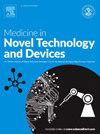深度学习用于阿尔茨海默病自动检测的最新方法系统综述
Q3 Medicine
引用次数: 0
摘要
阿尔茨海默病(AD)是最常见的痴呆症病因,但它是由多种不同疾病引起的。在全世界老年人口中,阿尔茨海默病是导致死亡、残疾和依赖的第七大原因。抑郁、社会隔离、不活动、酗酒、吸烟、肥胖、糖尿病、高血压和年龄都是增加患痴呆症可能性的变量。其他风险因素包括社会隔离、抑郁和吸烟。早期诊断阿尔茨海默病可以提高接受护理和治疗的几率。医学专家通常根据有限的症状来诊断阿兹海默症。另一方面,由于人工智能(AI)等技术的进步,现在已经可以对阿尔茨海默病(AD)进行识别和分类。然而,要确定目前人工智能支持的方法,我们必须对技术现状进行调查。诊断方法上的这一突破将促进临床决策支持系统(CDSS)的发展,该系统能够在无需人类专业知识的情况下自动诊断阿尔茨海默病(AD)。在本出版物中,我们对之前由其他研究人员审查过的 60 篇研究文章进行了系统性审查。系统综述揭示了新知识和新观点的综合。本研究讨论了当前的机器学习方法、深度学习方法、集合模型、迁移学习以及用于早期阿尔茨海默病诊断的方法。本文为大量研究问题提供了答案,并就人工智能辅助阿尔茨海默病诊断方法的许多要素综合了对读者有帮助的新鲜信息。此外,它还有可能激励人们进一步研究更有效的基于计算机的阿尔茨海默病智能识别方法。本文章由计算机程序翻译,如有差异,请以英文原文为准。
A systematic review on recent methods on deep learning for automatic detection of Alzheimer's disease
Alzheimer's disease (AD) is the most frequent cause of dementia, however, and it is caused by a number of different disorders. With regard to the elderly population all over the world, Alzheimer's disease is the seventh largest cause of mortality, disability, and reliance. Depression, social isolation, inactivity, alcohol, smoking, obesity, diabetes, high blood pressure, and age are all variables that can increase the likelihood of getting dementia. Other risk factors include social isolation, depression, and smoking. A diagnosis of Alzheimer's disease at an earlier stage may improve the odds of receiving care and therapy. Medical professionals often diagnose AD based on a limited number of symptoms. On the other hand, it is now possible to identify and categorize Alzheimer's disease (AD) because of technological advancements such as artificial intelligence (AI). However, to identify the current AI-enabled approaches, we must conduct an investigation into the state of the art. This breakthrough in diagnosis methodologies will enable the development of the Clinical Decision Support System (CDSS), capable of automatically diagnosing Alzheimer's disease (AD) without human expertise. In this publication, we conduct a systematic review of sixty research articles previously reviewed by other researchers. The systematic review sheds light on the synthesis of new knowledge and ideas. This study discusses the current approaches for machine learning, deep learning methods, ensemble models, transfer learning, and methods used for early Alzheimer's disease diagnosis. This paper provides answers to a large number of research issues and synthesizes fresh information that is helpful to the reader on many elements of AI-enabled approaches for Alzheimer's disease diagnosis. In addition, it has the potential to stimulate additional research into more effective methods of computer-based intelligent identification of Alzheimer's disease.
求助全文
通过发布文献求助,成功后即可免费获取论文全文。
去求助
来源期刊

Medicine in Novel Technology and Devices
Medicine-Medicine (miscellaneous)
CiteScore
3.00
自引率
0.00%
发文量
74
审稿时长
64 days
 求助内容:
求助内容: 应助结果提醒方式:
应助结果提醒方式:


